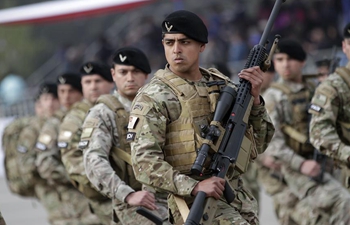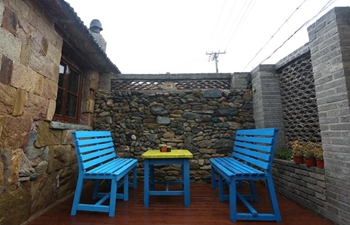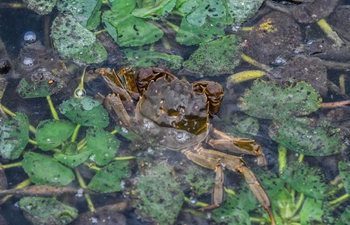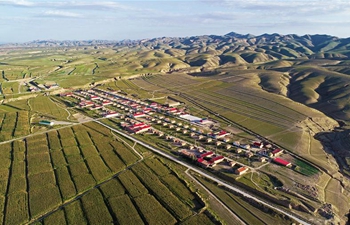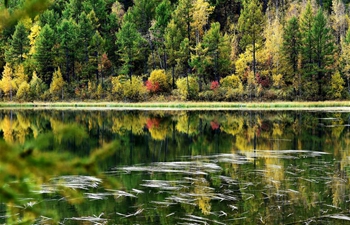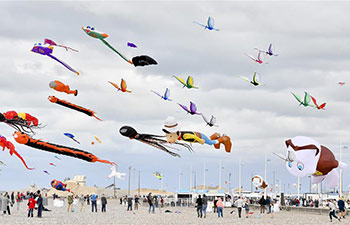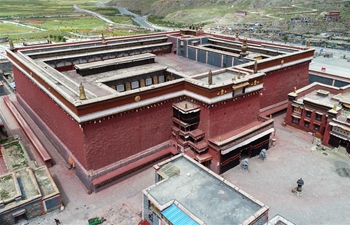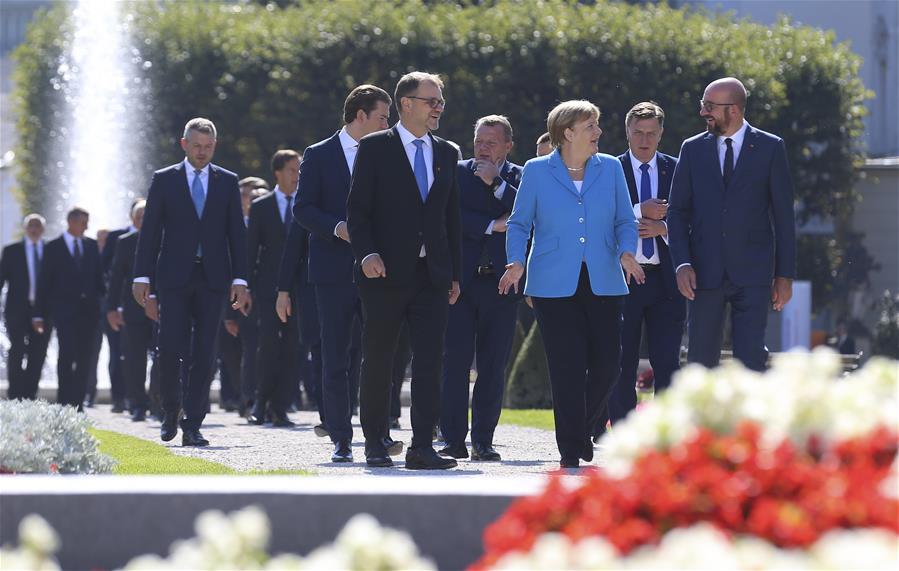
European leaders arrive for a family picture during the informal EU summit in Salzburg, Austria, Sept. 20, 2018. European Union (EU) leaders on Wednesday kicked off a two-day informal summit in the Austrian city of Salzburg, focusing on the controversial issues of migration and Brexit. (Xinhua/Ye Pingfan)
SALZBURG, Austria, Sept. 19 (Xinhua) -- European Union (EU) leaders on Wednesday kicked off a two-day informal summit in the Austrian city of Salzburg, focusing on the controversial issues of migration and Brexit.
The summit is hosted by Austrian Chancellor Sebastian Kurz, who took office last year. He leads the conservative Austrian People's Party and governs in coalition with the far-right, anti-immigrant and Eurosceptic Freedom Party.
The Austrian government has placed migration at the top of its EU presidency's agenda, as political tensions on migrants run high in the EU.
CLASHES ON MIGRATION
Following the last EU leaders' summit in June, the European Commission vowed to strengthen the bloc's border management agency Frontex, and set up migrant processing centers in North Africa.
In his State of Union speech last week in Strasbourg, European Commission President Jean-Claude Juncker said the European Border and Coast Guard should be bolstered with an additional 10,000 European border guards by 2020 funded by the EU budget.
Juncker's proposal was welcomed by Germany and France. Kurz also appeared to put aside his previous clash with German Chancellor Angela Merkel on migration and turned to support the plan to beef up external EU borders.
"There can be no open borders within Europe without proper protection of external EU borders," Kurz told the German press agency (dpa). "That's why it is so important to strengthen Frontex."
However, the proposal was opposed by some member states like Hungary and Italy who want to police their own borders against illegal migration and are unwilling to give up sovereignty to a central authority in Brussels.
Recently the Czech and Slovak leaders also bristled at EU immigration policy according to media reports.
The leaders of countries in eastern Europe said the EU should allocate funds to its member countries instead of Frontex to help them guard their own borders.
"Malta, Italy, Greece, Spain need to be told that they will get more money. They each have their own coast guard. They don't need any Frontex," Czech Prime Minister Andrej Babis said in a televised press conference after a joint session with the Slovak government.
"This evening, I will call on leaders to stop the migration blame game," European Council President Donald Tusk said in a press conference ahead of the informal Salzburg summit.
"Despite the aggressive rhetoric, things are moving in the right direction. Mostly because we have been focused on external border control and cooperation with third countries, which has brought down the number of irregular migrants from almost two million in 2015 to fewer than 100,000 this year," Tusk added.
EU official data showed that the influx of illegal migrants has dropped sharply since the huge inflows in 2015 and has gone back to pre-crisis levels.
According to the latest data by Frontex, in the first eight months of 2018, the number of irregular border crossings into the EU fell 40 percent from a year ago to about 86,500. In 2015, more than 1 million refugees and migrants crossed into Europe.
"I am hoping that in Salzburg, we will be able to put an end to the mutual resentment and return to a constructive approach," Tusk wrote in his invitation letter to the leaders of the member states ahead of the summit in Salzburg.
However, analysts say that because of the growing divergence on migration, it is difficult to say whether this EU summit will make any breakthrough.
In addition, the EU hopes to set up immigration centers in North African countries such as Algeria, Libya, Tunisia and Morocco to help refugees apply for asylum. But so far, no country has expressed its willingness to do so.
It is even harder to achieve the goal of reforming the European Asylum System and the Dublin Agreement, adding further difficulty to finding a solution in the short term.
BREXIT IN DEADLOCK
According to the leaders' agenda, Brexit will also be discussed in the presence of the EU chief negotiator Michel Barnier.
Time is running out with only six months to go before Britain's withdrawal from the EU, and the two sides are entering the final weeks of negotiations.
British Prime Minister Theresa May on Wednesday warned EU leaders that she will walk away from the Brexit negotiations unless a deal is concluded within the next two months. In an ultimatum at a summit in Austria, the prime minister insisted that extending the deadlocked talks beyond November was "not an option."
May also ruled out that there will be a second referendum.
"I want to be absolutely clear: this government will never accept a second referendum. The British people have voted to leave the European Union and we will be leaving on the 29th of March, 2019," May told reporters Wednesday.
Concerning Northern Ireland, both May and the Irish government have said a hard border between the two would be unacceptable.
In contrast, Brussels has insisted Northern Ireland must stay aligned with EU rules unless another solution can be found. EU leaders seem unwilling to compromise in their eyes the key EU principles to get a Brexit deal done.
Tusk told reporters Wednesday that May's proposals from Chequers indicate a "positive evolution in the UK's approach" as well as a will to minimize the negative effects of Brexit.
However, on other issues, such as the Irish question, or the framework for economic cooperation, "the UK's proposals will need to be reworked and further negotiated."
A no-deal scenario must be avoided, said Tusk. "Let me recall that limiting the damage caused by Brexit is our shared interest. Unfortunately, a no-deal scenario is still quite possible. But if we all act responsibly, we can avoid a catastrophe," Tusk wrote in a letter to leaders of the member states inviting them to the Salzburg meeting.
Tusk noted that he may call a special Brexit summit in November in a last-ditch effort to avoid a no-deal scenario.


